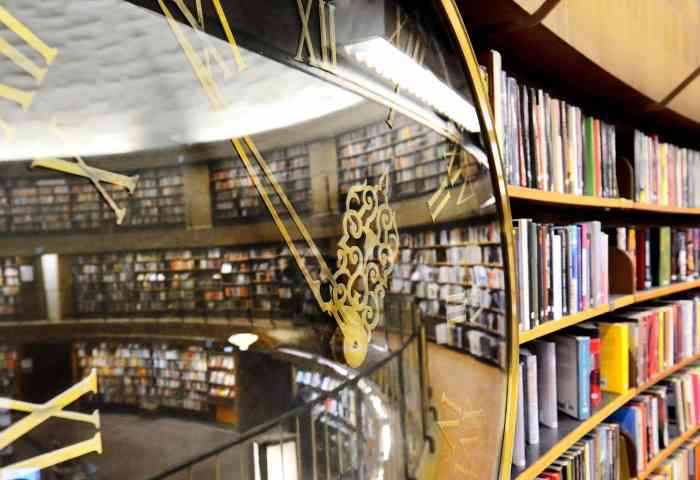Get started with Mizzou
Apply hereMaster of library and information science
Lead the preservation of communities, cultures and private organizations. The fully online master of library and information science (MLIS) with an emphasis in archival studies from the University of Missouri (Mizzou) prepares you to gather and catalog traditional and digital media from paper documents and photographs to video and email.
For careers in libraries, museums, government agencies, information centers and private collections, you will learn how to archive and record a diversity of information. Beyond techniques and best practices, you’re encouraged to think about archiving and records management as a gateway to community history. In all contexts, you get familiar with ethical collection and exhibition practices and become prepared to take the Academy of Certified Archivists examination.
The School of Information Science and Learning Technologies (SISLT) is a proud member of iSchools, an international coalition of leading information schools.
About the online MLIS in archival studies
You’re someone who not only appreciates but investigates history, combing through records to learn more about a point in time or niche subject area. You might have already started a career in library or information science, cataloging information and ensuring access for your community.
As Missouri’s only archives-focused program, this American Library Association (ALA)-accredited online MLIS serves a twofold purpose. A mix of library and information science and archival studies courses advance your digital literacy and understanding of research in information collection and preservation. At the same time, you explore the archivist’s broader role in selecting, approving and presenting materials, curating memories and advocating for diversity.
This online master’s in archival studies:
- Introduces you to the history, ethics and principles of the information professions, including archival science and records management
- Strengthens your digital, evaluation and analytical skills, equipping you to curate collections and adapt to an evolving field
- Upgrades your technical skills and exposes you to current storage, organization and communication systems used in the information professions
- Illustrates how archivists serve their community through records collection and data gathering
- Equips you to collect, appraise and preserve both traditional and digital documents for cultures, communities and institutions
Quick facts
Official name
Master of Library and Information Science with an emphasis in Archival StudiesCampus
Program type
Master's degreeAcademic home
College of Education & Human Development | School of Information Science and Learning TechnologiesDelivery mode
100% onlineAccreditation
Higher Learning Commission, American Library Association (ALA)Credit hours
39Estimated cost
$23,006.10*This cost is for illustrative purposes only. Your hours and costs will differ, depending on your transfer hours, your course choices and your academic progress. See more about tuition and financial aid.

Career prospects
Archivists create a multimedia narrative of the history of a community, culture or institution or preserve scientific, medical or humanities data. These professionals select, appraise, curate and provide access to diverse collections consisting of paper records, photographs, emails and word processing documents, among other materials, and create and manage metadata.
As more communities and institutions strive to capture and record events and information, the Bureau of Labor Statistics projects 10% more roles for archivists, curators and museum workers through 2032. Potential job titles include:
- Archivist
- Collections manager
- Digital preservation librarian
- Film and video archivist
- Museum archivist
- Photo archivist
- Records manager
Program structure
Complete the MLIS in archival studies entirely online through a mix of asynchronous and synchronous courses. SISLT occasionally holds face-to-face classes and events. Most library and information science faculty teach in Columbia, Mo., while some operate in Kansas City, Mo.
The program requires 39 credit hours, including 18 credit hours of required courses, nine credit hours for the emphasis area, nine credit hours of electives and three credit hours of a practicum experience in an archival, records management or information center setting.
MLIS courses typically use a semester format, although some may have an accelerated eight-week timeframe.
Students typically take one or two classes each semester and finish in two to four years. Students who attend full time typically finish in two years.
Emphasis area
After delving into the information field’s history, concepts, structure, management and current issues, you explore:
- The practices involved in archiving and records management
- Appraisal theories, documentation strategies and collection preservation practices
- Data and records management best practices for access and preservation
Review all requirements for the online MLIS in archival studies.
Delivery
100% onlineCalendar system
Semester-basedTypical program length
2-4 yearsTypical course load
1 or 2 classes each semesterAccreditation
The University of Missouri is accredited by the Higher Learning Commission, one of six regional institutional accreditors in the United States. The library and information science master’s program is accredited by the American Library Association.
Faculty spotlight

Dr. Cynthia Dudenhoffer joined Mizzou in 2021 as an associate teaching professor and program coordinator for the School of Information Science & Learning Technologies. Previously, she held the role of Director of Information Resources and Assessment at Central Methodist University. She has served in many leadership roles locally and nationally, including president of the Missouri Library Association. She also serves as a professional consultant in areas of academic library accreditation, program review, project management, and leadership through innovation. Areas of expertise include emerging technologies in information agencies and data literacy.

Areas of expertise:
- Libraries, archives and museums
- Digital humanities
- Museum archaeology
- Archival studies
- Records management
- History of information

